With the hustle and bustle of daily life, it can be easy to forget the beauty of nature and how truly simple life can be.
Primitive camping is a great way to rediscover that simplicity and connect with the great outdoors. But what exactly is primitive camping, and how do you prepare for it?
World of primitive camping is where you can disconnect from modern amenities and embrace a more raw and immersive outdoor experience.
So get ready to unplug, unwind, and enjoy all that nature has to offer with primitive camping.
What is Primitive Camping?
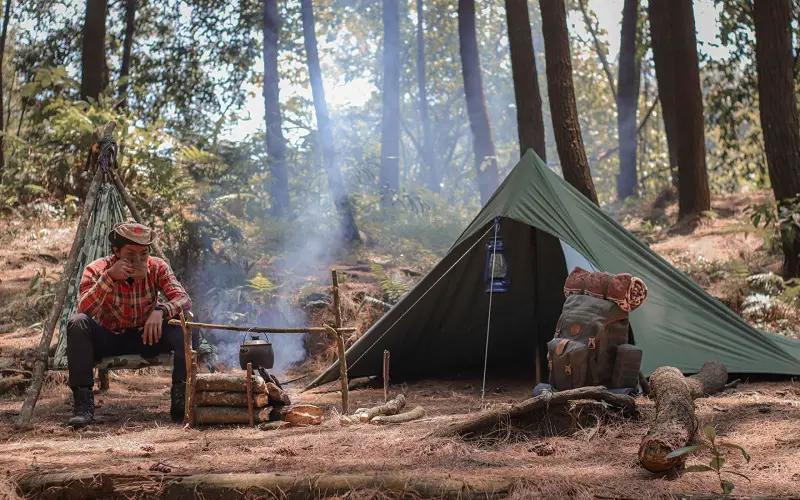
Primitive camping is a form of outdoor camping that focuses on embracing a back-to-basics approach.
It involves minimal equipment and facilities, usually in natural settings away from developed campgrounds.
It requires self-sufficiency and adaptability to changing conditions, with activities such as hiking, fishing, and wildlife watching is common.
Pros And Cons of Primitive Camping
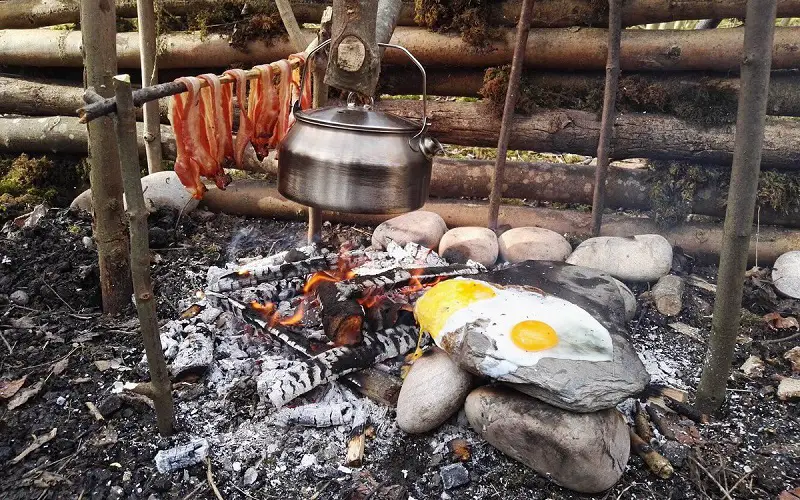
Camping in remote areas away from developed campgrounds is known as primitive camping.
It’s a great way to discover solitude and rediscover simplicity in the great outdoors. Primitive camping options include primitive campsites, backcountry camping, or even dispersed camping.
While it could be more affordable than camping at a developed campground, primitive campers should not expect modern amenities such as restrooms or potable water sources.
Instead, primitive sites might have only picnic tables and fire rings available for use. Before embarking on a primitive camping trip, campers should consider safety concerns such as wildlife encounters and limited access to emergency services.
Pros
- Connection with Nature: Primitive camping offers a more immersive experience in natural surroundings, allowing you to deeply connect with the wilderness.
- Solitude and Tranquility: With fewer crowds and modern distractions, primitive camping provides an opportunity for peaceful solitude and a break from the hustle and bustle of daily life.
- Self-Reliance and Skills Development: Primitive camping encourages self-sufficiency, fosters essential survival skills, and promotes resourcefulness in outdoor settings.
- Authentic Wilderness Experience: By forgoing modern amenities, primitive camping allows you to experience nature in its purest form, providing a genuine and raw outdoor adventure.
Cons
- Lack of Convenience: Primitive camping often means limited access to amenities like running water, electricity, and bathroom facilities, requiring greater preparation and adaptability.
- More Challenging: Primitive camping can be physically demanding, requiring additional skills, knowledge, and endurance to navigate and thrive in natural environments.
- Limited Safety Measures: Without the convenience of established campgrounds, primitive camping may involve increased risks associated with wildlife encounters, unpredictable weather, and potential emergencies.
- Additional Planning and Gear: Primitive camping necessitates careful planning, preparation, and acquiring specialized gear for self-sufficiency, which may require additional time, effort, and investment.
Essential items for primitive camping
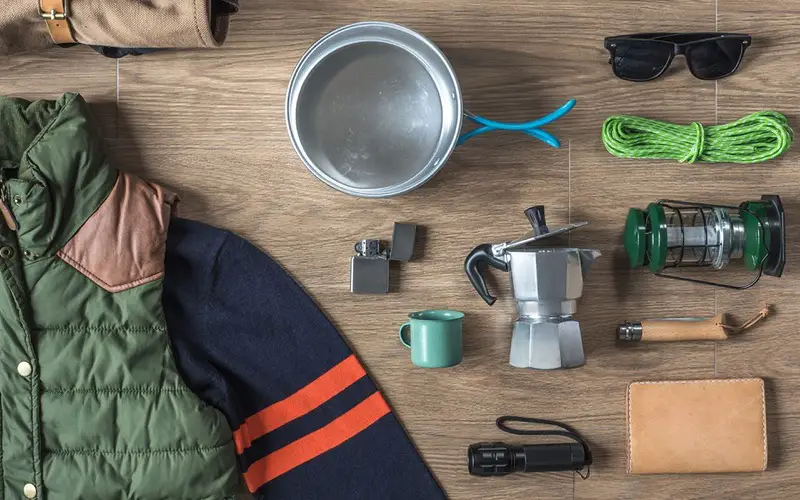
Preparing for primitive camping requires having the right camping gear with you.
While packing your bags make sure that you do not forget your sturdy tent which would protect you from all climatic conditions along with a warm and comfortable sleeping bag. You must carry an essential fire starter to ensure warmth and light during freezing nights.
A portable water filter or purification tablets will help you get clean potable water as you go further away from civilization. It’s also important to carry first aid equipment in case of emergencies while hiking in remote areas.
How to Prepare For a Primitive Camping Trip?
To prepare for a primitive camping trip, research your destination and any regulations.
Pack essential gear like a tent, sleeping bag, cooking supplies, and food. Remember basic hygiene needs such as portable toilets or digging latrines.
Practice Leave No Trace principles by minimizing environmental impact and properly disposing of waste.
Finding The Perfect Campsite

For the best primitive camping experience in the great outdoors, finding the right campsite is crucial.
Look for primitive campsites in state parks or national forests that offer amenities like fire rings and access to water sources. Make sure you have all your essential camping gear packed: tent, sleeping bag, pocket knife, and firewood.
Remember to choose your site based on potential hazards and weather conditions while leaving no trace behind. Primitive camping offers solitude and a chance to escape cell service while enjoying durable adventures in remote areas.
Leave No Trace Principles
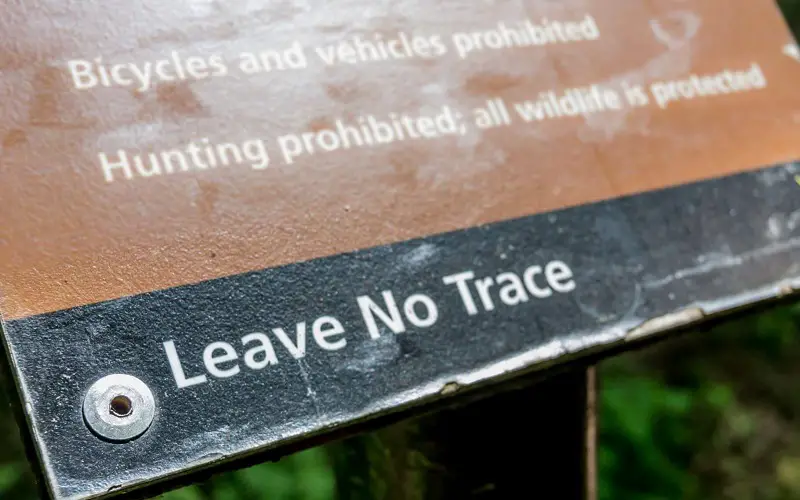
When engaging in primitive camping opportunities, it is critical to abide by Leave No Trace principles.
The primary aim is to reduce the environmental impact of your trip. This can be achieved by planning ahead and preparing adequately to ensure that you have everything you need for your trip.
Minimize your impact on nature by staying within designated camping areas or established primitive campsites with existing fire rings and restroom facilities.
Make sure you pack out all trash and leave natural habitats undisturbed while observing wildlife from a safe distance.
Final Word
Primitive camping is a perfect way to disconnect from the hustle and bustle of city life and rediscover simplicity in nature.
It can provide a unique and rewarding experience that traditional camping lacks. However, it’s essential to know the pros and cons before getting started, as well as having the necessary gear, preparation, and knowledge of Leave No Trace principles.
Finding the ideal campsite can be a challenge, but with a few tips and tricks, you can find your perfect spot.
So why not try something new? Grab your gear, hit the road, and start exploring. The great outdoors is waiting for you!
References:


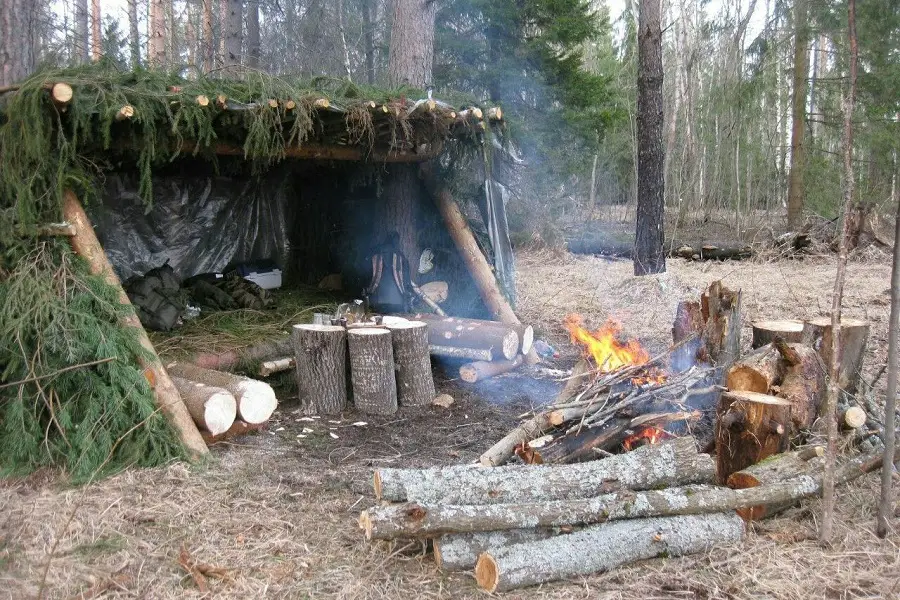

![9 Final Thoughts And Items For Your First Camper Adventure [Checklist] 9 RV Camping Checklist](https://kempoo.com/wp-content/uploads/2018/11/first-camper-adventure.jpg)
